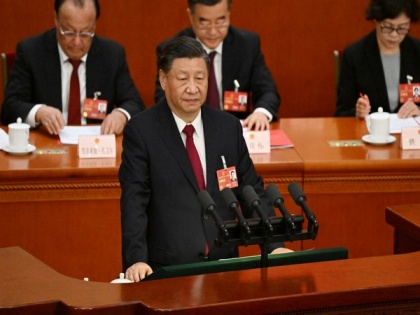How China's attempts to "control" Asia failed: Report
By ANI | Updated: March 21, 2023 08:30 IST2023-03-21T08:26:25+5:302023-03-21T08:30:09+5:30
New Delhi [India], March 21 : Since the dawn of international politics, smaller states have faced the formidable challenge ...

How China's attempts to "control" Asia failed: Report
New Delhi [India], March 21 : Since the dawn of international politics, smaller states have faced the formidable challenge of navigating great-power rivalries. The geopolitical contest between the United States and China has compelled countries to balance their competing national interests. Toward which side they gravitate depends on domestic and external circumstances, writes Sunday Times.
Consider the Philippines. It has an interest in maintaining both its growing economic ties with neighbouring China as well as its half-century-old security alliance with the US. The Philippines' last president, Rodrigo Duterte, placed greater emphasis on China and turned sharply away from the US after his election in 2016.
In exchange for effectively siding with China in the escalating great-power competition, Duterte sought Chinese investment in his pet project, the "Build! Build! Build!" infrastructure programme, and moderation of China's aggressive behaviour in the West Philippine Sea, particularly its seizure of islets and outcroppings claimed by the Philippines.
But China did not oblige. When Duterte's presidency ended last June, China had delivered less than 5 per cent of the USD 24 billion it had pledged to invest in the Philippines, and its provocations in the West Philippine Sea, which comprises part of the Philippines' exclusive economic zone, continued unabated, Sunday Times reported.
Duterte's successor, President Ferdinand Marcos, Jr., has so far taken a more prudent strategic approach. Deeply concerned about the territorial disputes fuelled by Chinese claims in the South China Sea, Marcos has decided to reaffirm and enhance his country's partnership with the US.
To this end, the Philippines has decided to grant the US access to four more military bases, for a total of nine, some of which are located near disputed areas of the South China Sea. American troops rotate regularly through the designated bases. The US and the Philippines have also agreed to resume joint patrols in the South China Sea, which, under Duterte, were suspended for six years, Sunday Times reported.
Besides the US, the Philippines and Japan recently agreed to deepen defence ties, with Japanese troops securing greater access to Philippine territory for training and logistics.
Moreover, the Philippines is pursuing greater maritime cooperation with the United Kingdom. The two countries held their inaugural Maritime Dialogue on February 7. Two weeks later, the Philippine defence minister agreed with his Australian counterpart to formalise their strategic defence engagement, including joint patrols in the South China Sea.
So, the Philippines is gradually becoming a key hub of military cooperation among Southeast Asia's democracies. This affords the US important strategic benefits for which China has only itself to blame.
China's efforts to bully its neighbours into acquiescing to its demands and preferences have not only failed but have led to the emergence of a kind of anti-China coalition in the Indo-Pacific.
This has certainly been the case in South Korea. After the country agreed in 2016 to deploy a US Terminal High-Altitude Area Defence (THAAD) anti-missile system on its territory, a response to escalating threats from North Korea, China imposed heavy economic sanctions. With that, public opinion in South Korea turned sharply against China.
Measured on a scale of 1 (most negative) and 100 (most positive), South Korean sentiment toward China now stands at 26.4 - two points less favourable than sentiment toward North Korea (28.6), according to a Hankook Research poll conducted in 2021, Sunday Times reported.
Partly in response to public opinion, South Korean President Yoon Suk-yeol, like Marcos, has sought to strengthen its alliance with the US. He is also working to improve long-strained relations with Japan, not least by announcing a plan to compensate Koreans who performed forced labour under Japanese colonial rule during World War II.
China's aggressive sanctions against Australia which were imposed in 2020 as punishment for the Australian government's call for an independent inquiry into the origins of COVID-19 also spurred a similar foreign policy reorientation.
In September 2021, Australia formed an "enhanced security partnership," known as AUKUS, with the US and the United Kingdom. And Australia, India, Japan, and the US have sought to strengthen the Quadrilateral Security Dialogue.
China must recognise the fear it has incited with its bullying, and democracies across the Indo-Pacific must take care to ensure that their responses do not heighten tensions excessively otherwise the situation may soon turn catastrophic, Sunday Times opined.
Disclaimer: This post has been auto-published from an agency feed without any modifications to the text and has not been reviewed by an editor
Open in app